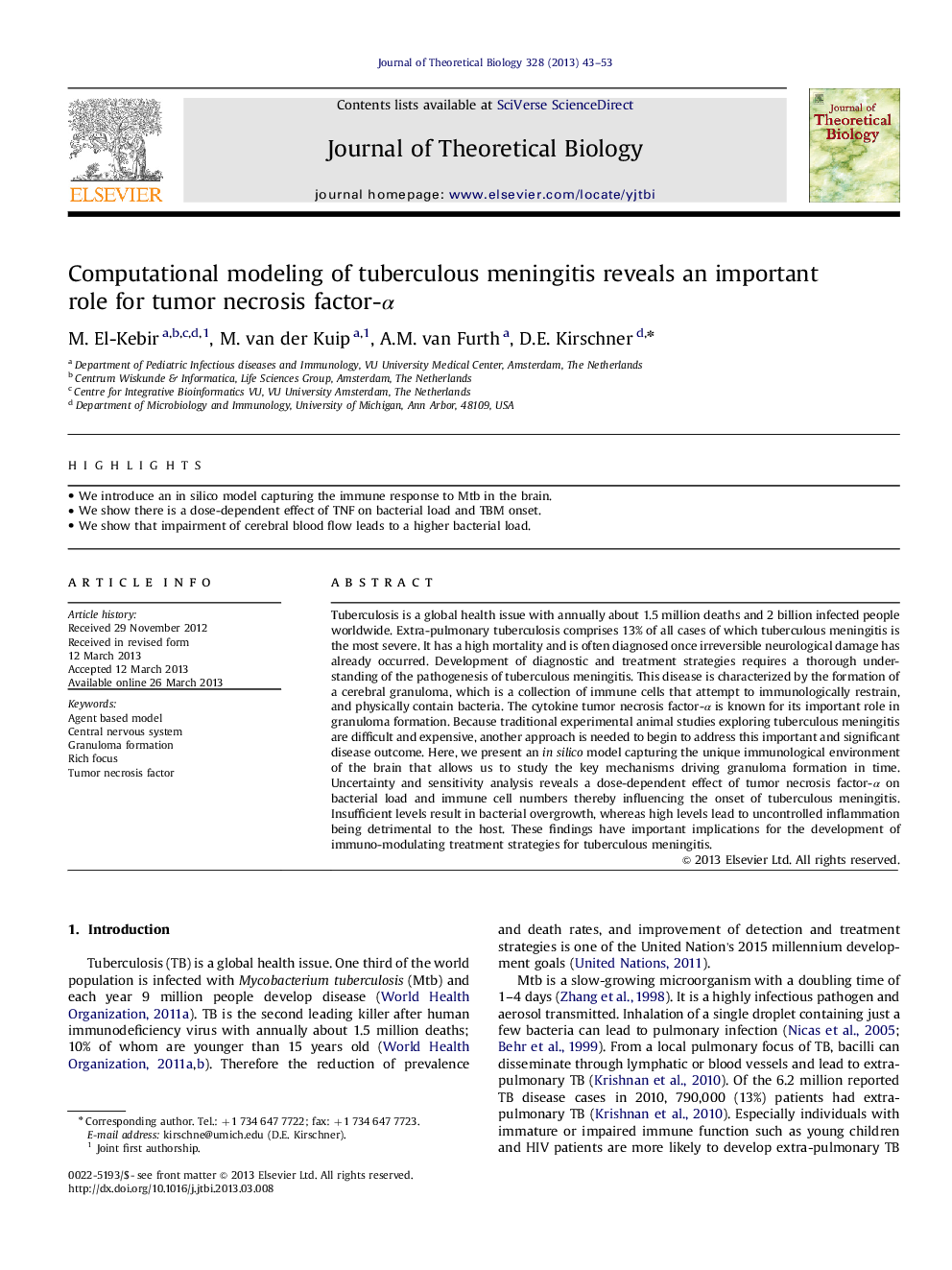| کد مقاله | کد نشریه | سال انتشار | مقاله انگلیسی | نسخه تمام متن |
|---|---|---|---|---|
| 4496396 | 1623882 | 2013 | 11 صفحه PDF | دانلود رایگان |

• We introduce an in silico model capturing the immune response to Mtb in the brain.
• We show there is a dose-dependent effect of TNF on bacterial load and TBM onset.
• We show that impairment of cerebral blood flow leads to a higher bacterial load.
Tuberculosis is a global health issue with annually about 1.5 million deaths and 2 billion infected people worldwide. Extra-pulmonary tuberculosis comprises 13% of all cases of which tuberculous meningitis is the most severe. It has a high mortality and is often diagnosed once irreversible neurological damage has already occurred. Development of diagnostic and treatment strategies requires a thorough understanding of the pathogenesis of tuberculous meningitis. This disease is characterized by the formation of a cerebral granuloma, which is a collection of immune cells that attempt to immunologically restrain, and physically contain bacteria. The cytokine tumor necrosis factor-αfactor-α is known for its important role in granuloma formation. Because traditional experimental animal studies exploring tuberculous meningitis are difficult and expensive, another approach is needed to begin to address this important and significant disease outcome. Here, we present an in silico model capturing the unique immunological environment of the brain that allows us to study the key mechanisms driving granuloma formation in time. Uncertainty and sensitivity analysis reveals a dose-dependent effect of tumor necrosis factor-αfactor-α on bacterial load and immune cell numbers thereby influencing the onset of tuberculous meningitis. Insufficient levels result in bacterial overgrowth, whereas high levels lead to uncontrolled inflammation being detrimental to the host. These findings have important implications for the development of immuno-modulating treatment strategies for tuberculous meningitis.
Journal: Journal of Theoretical Biology - Volume 328, 7 July 2013, Pages 43–53